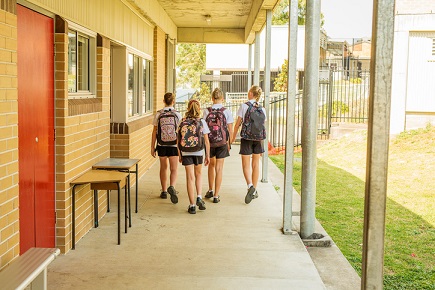
Under the IPS policy, states and territories have the flexibility to implement the programs, activities and initiatives that best suit the specific needs of their schools and students.
However, a number of reports have questioned the impact this is having on schools.
A 2016 parliamentary inquiry in Western Australia found no evidence that the model had improved student outcomes and was even exacerbating inequalities in schools.
“It's also too early to tell whether the IPS initiative has created the conditions which will lead to improved student outcomes in the future,” the report, by the Education and Health Standing Committee, found.
“While the Department of Education acknowledges that teacher quality is paramount in improving student outcomes, it is not clear to the committee how the IPS initiative directly promotes improved teacher quality. This ought to be the primary focus of future educational reforms.”
The report added it was unsustainable for some schools to remain outside the IPS system because they would then be expected to take all teachers rejected by IPS schools.
Internationally renowned Finnish education expert, Pasi Sahlberg, who was previously director-general of Finland’s Ministry of Education, has said that in the United States, “school autonomy has often led to the lessening of teacher professionalism and autonomy for the benefit of greater profits for those who manage or own non-government schools”.
“It is about the freedom of the school management – not necessarily the teacher – who operate without due regard for the community or for local democratic control,” Sahlberg said.
Dr David Zyngier, a senior lecturer at the Faculty of Education at Monash University, tells The Educator that there “is no place in the Australian public education system for competition between schools”.
“In fact research shows need more collaboration if we want to raise student outcomes,” he says.
“The research from the OECD and the Senate Select Committee on Education reinforces these findings that there is little benefit in such policies.”
However, Trinity Beach State School principal, Mark Allen, says his students will benefit from the IPS model, which gives the school’s leadership team greater autonomy to source programs and strengthen partnerships.
“It’s an auspicious time,” Allen told The Educator.
“This, being our second application to the program, was an exciting challenge. There were several key changes to the process, largely centred on community consultation, which was highly rewarding.”
Allen said he gained an insight into the thoughts of all parties, who had an opportunity to interact with the leadership team, and the principal of Smithfield State High School – which is also an IPS school.
“The IPS model provides opportunities for students and communities. It’s also about building and expanding partnerships, which contribute to a stronger school,” he said.
“The future for Tropical North Learning Academy – Trinity Beach State School is very bright.”
Related stories:
Changes to principals’ hiring powers ‘don’t go far enough’
Report slams school autonomy as divisive


